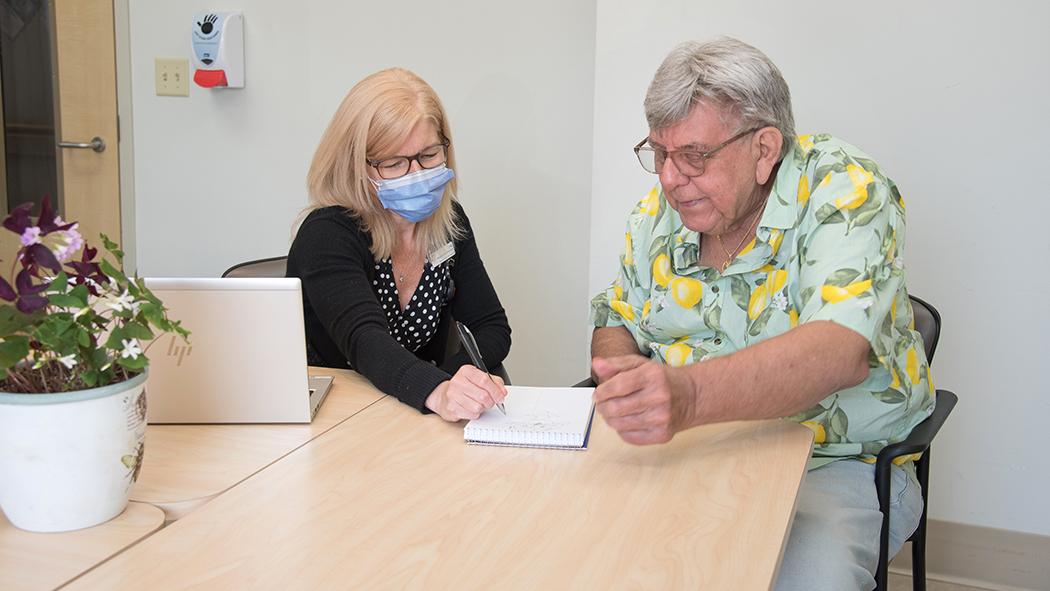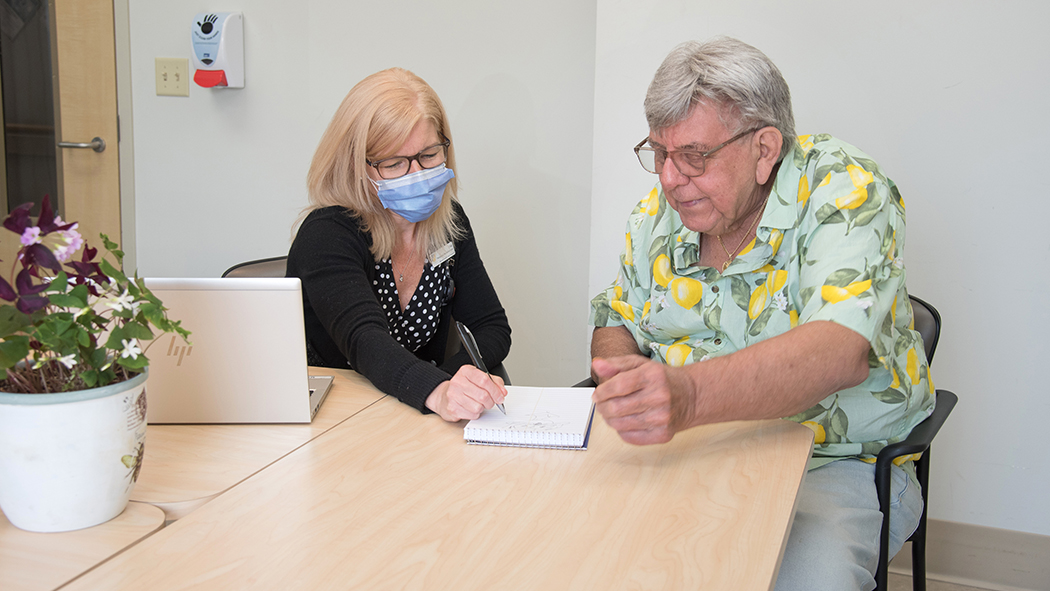
July 4, 2023
Lisa Joworski, Therapeutic Recreation Specialist, Geriatric Mental Health Program, London Health Sciences Centre (LHSC) has started a pilot project to create “life story videos” – also known as digital storytelling (DST) – to enhance relationships between staff and clients.
The life story video
“The idea of having life story videos used as person-centred care tools has been on my mind for years”, Lisa says. “Through my experience working with persons living with dementia, there were times when clients or their families have shown me and other team members pictures or a video of who they were before the progression of the disease, simply out of wanting to share. I’ve found that it also provides us with another level of appreciation for that person.”
The videos are typically three to five minutes long and can be used by the participant for legacy purposes as well as an education tool for health professionals involved in their care. The participant controls and leads the process of creating the video with guidance from Lisa.
Ensuring storyteller wellbeing remains top priority throughout the entire process with the storyteller making all final decisions on the written story, voiceover, selected imagery and music.
The pilot project
Before implementing DST with persons living with dementia, Lisa is working to refine her skills with individuals who are connected to the Adult Mental Health Outpatient Clinic. When Lisa asked Art for his support with this project, he kindly agreed.
“I have worked with Lisa over many years, so when she asked me if I wanted to participate in this new project, I immediately said yes. I really respect her and wanted to help,” Art says.
The hardest part of the process during their weekly sessions was narrowing down what main storyline would be in Art’s story. Art shares, “When this started it was a way to support Lisa and her project. The story was the goal originally. A story of my life. Then after much time it shifted to become a story about father and son relationships rooted in love.”
Looking back over his experience during the process of collecting photos and preparing other elements for the video, Art says, “I discovered a different father – a different relationship with him. For my entire adult life, I carried around only the dark times, and now, through this process I discovered a loving dad who I am proud of and the loving relationship between us. The truth can be painful too, but for those who have the courage to move on through, the rewards are great.”
The process became just as important to Art as the final video.
The video’s impact
“With the limited length of the video, the idea is to capture a meaningful moment in the person’s life to better understand what truly matters to them, all expressed on their own terms and in their own voice,” Lisa explains. “The story could be about whatever aspect of their life they want to share that will serve as a foundation to building relationships with staff or others they encounter on their health care journey.”
“My memories of my life as a young person were only about the hard times I went through. In doing this video, in going through the process, I found joy and shed sadness, victimization and yes, even hate that has imprisoned me,” Art says.
For Art, going through the process provided him an opportunity to deeply reflect on his life. “I learned how much I enjoy delving into things, relating to others, and providing thoughtful messages. This project was a launching pad for my own self-discovery,” Art says.
Art is grateful for Lisa’s project. “This is a gift she gave me. I have so much respect for the work Lisa does,” Art shares.
Through Art’s experience, the process of reflecting on all aspects of his life during the making of this video turned out to be surprisingly cathartic and impactful. "I fully embraced the power of this process and the positive difference it can make in peoples’ lives.”
As the pilot project continues, the hope is to provide more clients involved with the Geriatric Mental Health Program the chance to produce their own life story videos, and for care partners to benefit and learn from lived experiences, all shared through a unique and meaningful form of storytelling.
